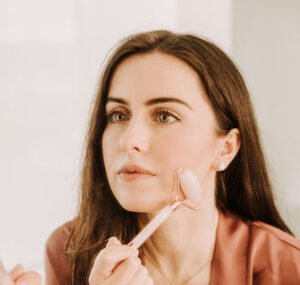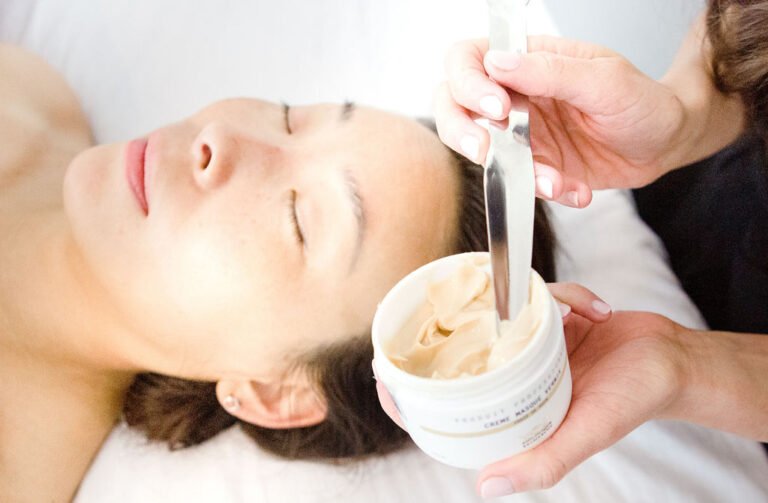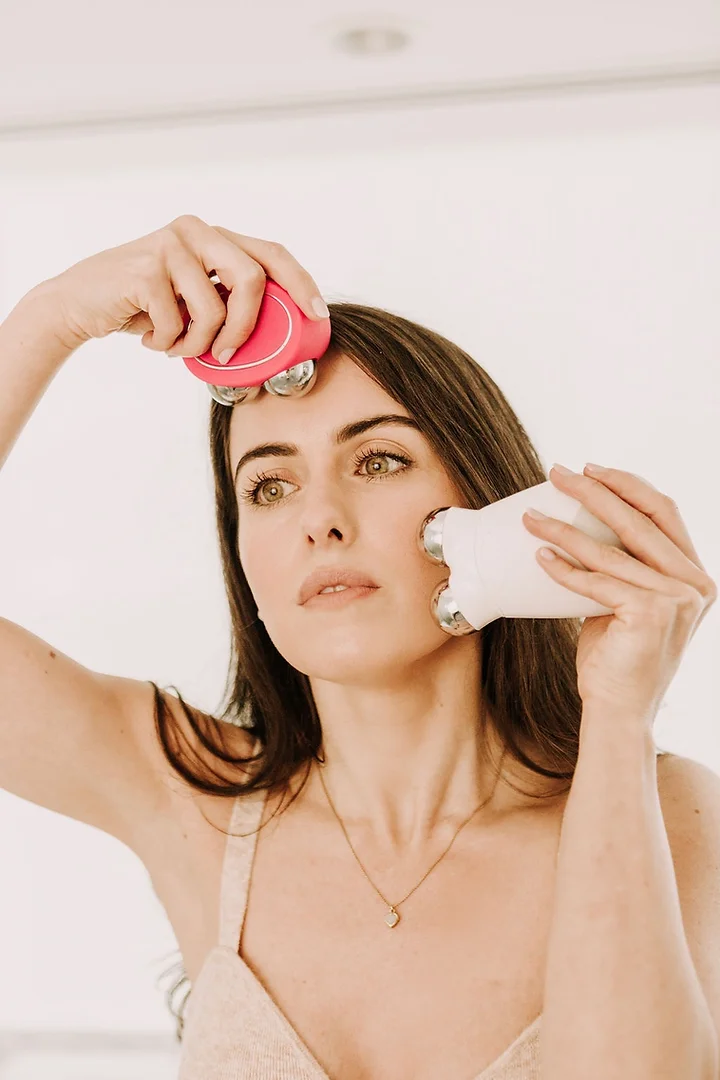Prevention is better than cure!
Protecting your skin with sunscreen from sun damage is essential and probably the best skincare product you will invest in. It’s simple protect yourself from the damage in the first place.
Overexposure to UV (ultraviolet) light from the sun is the leading cause of premature ageing; approximately 80 per cent of ageing comes from sun exposure. If you are investing $100s on products and treatments but not protecting your skin, you are throwing money down the drain, its a waste of your time and money.
Sun Time
Without the sun, life on Earth wouldn’t exist. The sun gives off different types of radiation like visible light which allows us to see the world, infrared radiation which will enable us to feel the heat from the sun and ultraviolet (UV) radiation which can have an impact on our health.
UV Rays
The Ozone layer around the Earth absorbs most of the UV radiation. There are parts of the world where the Ozone had thinned out, leading to more UV radiation getting through, and these regions have seen higher rates of skin cancer.
What are the different types of UV Rays?
UVB rays are responsible for the damage to the superficial skin cells leading to sunburn, delayed tanning and skin cancer. The ozone layer absorbs UVB, and around 5 per cent reaches the Earth surface. UVA rays penetrate deeper into the skin into the dermis. They are responsible for the break down of collagen, leading to wrinkles, and loss of elasticity in the skin. UVA does not absorb as well by the ozone layer and makes up around 95 per cent of the radiation reaching the Earths surface. UVC rays are very dangerous to all forms of life but is filter out by the ozone layer and never reaches the planet Earth. Protecting the skin against harmful UV rays is vital in achieving healthy skin. Now, the sun is not all harmful as we need exposure to sunlight to enable absorption of Vitamin D and increase serotonin levels, the happy hormone. However, overexposure to UV rays can lead to a break down of collagen and elastin and more alarming skin cancer. Overexposure to both UVA and UVB rays have damaging effects on the skin, and because of this, it’s essential always to use a broad-spectrum sunscreen, protecting the skin from both UVA and UVB rays.
What about Blue light – visible light?
It’s not only UVA and UVB rays that lead to damaged skin but also blue lights, also known as HEV (high energy visible light). Blue lights are not only emitted from the sun but also electronic screens, so even when you are not in the sun, you can be occurring skin damage while endlessly scrolling through your phone. Blue lights initially thought to cause eye damage and affect our sleeping patterns but, Dermatologists found in studies that blue light can lead to pigmentation, ageing and cell death in the skin. Not all sunscreens protect you from blue light, so its essential to invest in one that does.
Infrared Radiation
Infrared rays alongside UV rays and blue lights can lead to damage on the skin. While Infrared rays (IR) are responsible for the heat, we feel from the sun they can penetrate deeper into the skin than UVA&UVB rays passing through the epidermis, dermis and into the subcutaneous layer. The heat produced by the IR can cause inflammation in the skin which we know in the long term can cause ageing in the skin and can worsen skin pigmentation disorders like melasma. IR can generate free radicals which can lead to a breakdown in collagen and accelerate the ageing process. Look for sunscreens with added IR protection.
Do melanin rich skin tones need sunscreen?
A common question – Do melanin rich skin tones need to wear sunscreen?! The answer is yes, they do. While the skin does have more melanin in the skin compared to fair skin, they still can develop a sunburn, skin damage and skin cancer although not as common as fair skin. It’s thought that wearing sunscreen will affect the ability to make vitamin D in response to sunlight exposure. Skin with more melanin (pigment) can have a harder time absorbing UV rays.
No sun protection can block out all UV rays, so even with sunscreen, we are all capable of making Vitamin D. I recommend supplementing with Vitamin D in the winter months if you live somewhere with minimal exposure to sunlight.
I recommend to still wear sunscreen in the Winter months as those pesky UV rays breakthrough on a cloudy day.
Picking your sunscreen
Prevention is better than cure! Protecting the skin from sun damage is important and should be done right. The correct spf is the best age preventative product you can invest in! It’s simple, protect yourself from the damage in the first place. Over exposure to UVA and UVB rays can cause premature aging, wrinkles, sun spots, breaks down our collagen and more alarming – skin cancer!⠀
There are two common choices of sunscreens, “Inorganic” or “Organic”, which, respectively, either lack or contain Carbon.
Inorganic, often called “Physical” or “Mineral”, sunscreens typically contain either Zinc Oxide or Titanium Dioxide. Inorganic sunscreen works by reflecting UVA rays (the rays most known to cause tanning/wrinkling) and UVB rays (the rays most known to cause skin cancer).
Organic (or “Chemical”) sunscreens contain compounds such as Avobenzone, Octinoxate, Octisalate, and Oxybenzone, which utilize their Carbon bonds to absorb both UVA and UVB rays. When I say that rays are “absorbed”, I mean that the energy from the UV radiation is converted into heat. ⠀
One scientifically sound reason to consider inorganic (physical) over organic (chemical) sunscreen is that the extra heat produced by a purely absorptive, ‘chemical’ sunscreen can further agitate the skin of those with a form of Hyper-pigmentation (like Melasma).
Breakdown of both below
Physical Physical sunscreen uses mineral ingredients, Zinc Oxide or Titanium Dioxide . These ingredients work to reflect UVA & UVB rays off the skin. There are no chemicals involved and are suitable for all skin types. Chemical Chemical sunscreens contain compounds such as Avobenzone, Octinoxate, Octisalate, and Oxybenzone, which utilise their carbon bonds to absorb both UVA and UVB rays, converting the UV radiation into heat, which the skin will dispers.
SPF – Sun Protection Factor
SPF measures the protection from UVB rays. UVB rays are responsible for sunburns and contribute to skin cancer.
Here’s a breakdown on SPF and how much protection you are approximately receiving.
SPF 15 – blocks 93% UVB radiation
SPF 30 – blocks 97% UVB radiation
SPF 50 – blocks 98% UVB radiation
I recommend an SPF of 30 – 50. Going higher than an SPF 50 is not entirely necessary – an SPF 100 can give a false sense of security when you are only receiving one per cent more protection from UVB rays. Wearing SPF 100 can lead to not reapplying SPF, seeking shade or taking other measures of protection from the sun, because it’s believed you’re completely protected and shielded from the sun – wrong!
Recommended Sunscreens
Dermaquest SheerZinc SPF 30 a broad-spectrum physical SPF with added Infrared and Blue light protection and contains 18.6% zinc oxide. SheerZinc is my go-to, and I find its perfect for all skin types, including oily or acne-prone skin. It doesn’t leave the skin sticky or washed out, and it works well underneath makeup. Sunforgettable Total Protection Brush-On Shield SPF 50 a loose mineral powder physical sunscreen using a combination of Titanium Dioxide 22.5% and Zinc Oxide 24.5% I love this sunscreen powder, and I use it on top of my SheerZinc. I also find it great as a top-up when out and about at the beach. Colorescience is excellent for all skin types.
Final Notes
I’ve said it before, and I’ll repeat it, again and again, sunscreen is the most powerful tool you have to fight signs of premature ageing but more importantly protecting your skin from skin cancer. Invest wisely in your sunscreens; you want to be protecting your skin in the most effective way to prevent premature ageing and skin cancer. We all need to be protecting our skin, including darker skin tones despite the myths.
Wear your susncreen every single day, your skin will thank you




